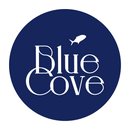
Deep in the pandemic lockdown, when baking sourdough bread became a household hobby, Stephanie Fels was consumed by a more unusual culinary pursuit: tinned fish.
Her one-bedroom apartment in New York City was overtaken by cans, equipment and the smell of seafood. She used a pressure cooker to safely can fish, from trout and salmon to striped sea bass and halibut. (She put herself through a seafood food-safety certification program beforehand.)
As friends and family started clamoring for her creations, the popularity of tinned fish was exploding in America. In 2022, U.S. tinned fish sales rose to $2.7 billion — a nearly 10% jump over the previous year, according to market research company Euromonitor International — fueled largely by younger consumers and Tik Tok. Buzzy new companies like Fishwife now sell tins of sardines and salmon with chile crisp at Whole Foods and Costco alongside huge producers like Bumble Bee and Starkist.
Fels, a former finance executive and now a San Francisco resident, went all in on tinned fish last year. She started Blue Cove Preserves, which she hopes will set itself apart in the crowded tinned fish landscape with a high-end product completely sourced and packaged in the United States. Rather than outsourcing production abroad, which many U.S. tinned fish companies do, Fels partnered with an American cannery to make the country’s only tinned branzino.
“It’s a beautiful artisanal industry that’s a lost art,” Fels said of canning in the U.S.

Fels grew up in her parents’ native countries of Ecuador and France, and was exposed at an early age to a culture of tinned fish abroad. The idea for a business came during a family trip, when her sister brought excellent French canned seafood for a charcuterie board. She saw an opportunity in the United States, which, despite the recent tinned fish renaissance, is still dominated by huge companies that mass produce canned seafood abroad in Asia or Europe.
“There’s a lack of consumer consumption of small batch artisanal products,” she said. “I think it’s trending in certain social circles but it has such a long way to go in terms of it being fully appreciated by the average American consumer.”
She was told she couldn’t can seafood at a commercial kitchen. She knew she couldn’t afford the half a million dollars or more it would take to build even a small cannery. So Fels found one of the country’s five remaining independent canning facilities: Ekone, a third-generation business in Washington state that grows, smokes and packs its own oysters.
Fels sources fish from the only branzino farm in the U.S. Ideal Fish in Connecticut uses recirculating aquaculture technology, which reuses water in tanks to create what it says is a more sustainable farming process. Employees at the farm filet the branzino by hand and ship it flash-frozen to Ekone, where it’s mixed with condiments and canned.

For now, Blue Cove sells two tins: one with olives and herbs, and the other with roasted Spanish piquillo peppers, both preserved in Italian olive oil. Even in a can, the branzino retains its luscious, delicate texture. The add-ins, like buttery Castelvetrano olives and Kalamata olives cooked in a pan until they’re crisp and smoky, accentuate the fish’s flavor.
Alimentari Aurora in San Francisco became the first store to carry Blue Cove last year. (Fels’ partner is a customer and friend of owner Dario Barbone.) Barbone, who curates one of the city’s best canned seafood selections and offers a monthly tinned fish subscription, was impressed both by the company’s quality and commitment to “doing the right thing … Use American fish, and co-pack in the U.S. as well,” he wrote in an email to the Chronicle: “There was (a) real thought process in choosing the fish, and chasing taste.” Plus, Blue Cove’s branzino is “just smacking,” he wrote.
Over the next decade, Fels predicts the American tinned fish market will become even more mainstream. “A few years ago our question was: Is this just a fad? But it’s been on the steady rise for four to five years,” she said. Big-name brands like Bumble Bee may try to acquire the hot upstarts. She hopes Blue Cove will persist, and help American canning mount a comeback.
“Being part of that revival,” Fels said, “is something that really gets me out of bed.”

